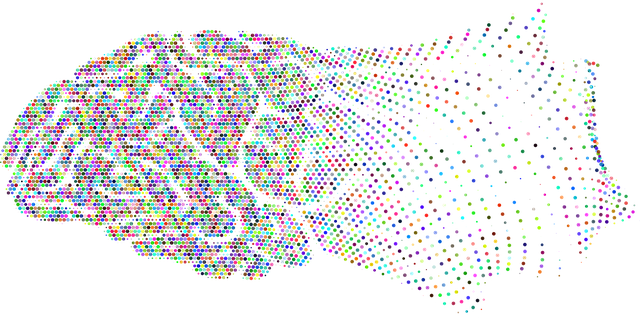Lakewood Grief Counseling Therapy's Recovery-Focused Methodology (RFM) empowers individuals to build resilience, navigate loss, and enhance mental wellness through evidence-based practices. RFM shifts the focus from trauma to recovery, guiding clients in self-care, identifying strengths, and mitigating mental illness stigma. This approach enhances therapist risk assessment, enabling personalized interventions. By fostering adaptability, self-efficacy, and control, RFM offers a holistic framework for complex emotional needs, promoting long-term emotional management and aligning with Mental Health Policy goals. Consistent practice of emotional healing exercises, structured approaches, and community support create a sustainable path to mental wellness.
“Resilience is a powerful tool in navigating life’s challenges, and RFM (Recollection, Feeling, and Meaning) exercises have emerged as an effective method to build mental fortitude. This article explores the transformative potential of RFM in therapeutic settings, particularly focusing on its application in Lakewood Grief Counseling Therapy. We’ll delve into how this approach aids individuals in processing grief, creating a lasting impact. By examining case studies and best practices, we uncover strategies for integrating RFM techniques into therapy, fostering resilience and enhancing well-being.”
- Understanding RFM and its Role in Resilience Building
- Implementing RFM Exercises in a Therapeutic Setting
- The Impact of RFM on Grief Counseling at Lakewood
- Best Practices for Sustaining Resilience through RFM Techniques
Understanding RFM and its Role in Resilience Building

Resilience is a vital component of mental well-being, enabling individuals to navigate life’s challenges and bounce back from adversity. RFM (Recovery-Focused Methodology) is an evidence-based approach that plays a pivotal role in fostering resilience by shifting the focus from the trauma or loss to recovery and growth. This methodology is particularly relevant in the context of Lakewood Grief Counseling Therapy, where professionals help clients transform their experiences into opportunities for personal development.
By employing RFM, therapists can guide individuals through a process of self-care practices, encouraging them to assess their emotional responses and develop coping strategies. This involves recognizing one’s strengths, resiliencies, and resources, which are essential in mitigating the impact of mental illness and reducing the stigma associated with it. Moreover, risk assessment for mental health professionals is enhanced by RFM, as it promotes a comprehensive understanding of clients’ vulnerabilities and enables tailored interventions to support their resilience-building journey.
Implementing RFM Exercises in a Therapeutic Setting

Implementing RFM (Resilience, Flexibility, and Mastery) exercises in a therapeutic setting, such as Lakewood Grief Counseling Therapy, offers a powerful approach to enhancing mental wellness and emotional intelligence. These exercises are designed to equip individuals with the tools needed to navigate life’s challenges more effectively, fostering resilience in the face of adversity. By incorporating RFM techniques, therapists can help clients develop a positive mindset that promotes flexibility in thinking and behavior, ultimately leading to greater mastery over their emotions and life circumstances.
At Lakewood Grief Counseling Therapy, our experienced professionals utilize these exercises to support individuals through grief and loss while cultivating long-term emotional well-being. Through structured activities and guided practices, clients learn to reframe negative thoughts, adapt to changing situations, and assert control in stressful environments. This holistic approach not only aids in the healing process but also equips individuals with lifelong skills to thrive despite life’s ups and downs, ensuring a brighter and more resilient future.
The Impact of RFM on Grief Counseling at Lakewood

The implementation of RFM (Resilience, Flexibility, and Mastery) exercises in Lakewood Grief Counseling Therapy has significantly transformed the way support is provided to individuals grappling with loss. This innovative approach recognizes that building resilience is a key aspect of healing from grief, enabling clients to navigate their emotional journeys more effectively. By integrating techniques designed to foster adaptability, self-efficacy, and a sense of control, RFM offers a holistic framework for addressing complex emotional needs.
The impact of this model has been profound, as it moves beyond traditional counseling methods. Through the promotion of positive thinking and the use of Emotional Well-being Promotion Techniques, clients are equipped with valuable tools to manage their grief in the long term. This shift aligns with the broader Mental Health Policy Analysis and Advocacy goals, emphasizing the importance of prevention and early intervention strategies for mental health support, especially in communities like Lakewood where access to specialized counseling services can be limited.
Best Practices for Sustaining Resilience through RFM Techniques

Building resilience is an ongoing process that requires consistent effort and structured approaches. When implementing Resilience-Focused Mental Health (RFM) techniques, such as those offered by Lakewood Grief Counseling Therapy, several best practices can help sustain long-term mental wellness. One key practice is integrating these exercises into daily routines. Incorporating emotional healing processes through journaling or mindfulness practices ensures that individuals develop a consistent coping mechanism. This regular engagement fosters a sense of control and equips individuals with tools to navigate challenging situations effectively.
Moreover, public awareness campaigns play a vital role in promoting mental wellness. Educating communities about the importance of resilience and providing guidance on mental wellness journaling exercises empowers folks to take charge of their emotional well-being. By combining individual therapy techniques like those offered by Lakewood Grief Counseling with community support through public awareness campaigns, individuals can build and maintain resilience over time. This holistic approach ensures that emotional healing processes are accessible, effective, and sustainable for all.
The implementation of RFM (Resilience-Focused Mindfulness) exercises has proven to be a powerful tool in enhancing resilience and supporting individuals through challenging times, as evidenced by its positive impact on Lakewood Grief Counseling Therapy. By incorporating these techniques, therapists can effectively guide clients towards navigating life’s stressors and building emotional strength. The best practices outlined in this article provide a framework for sustaining resilience, ensuring that the benefits of RFM continue to resonate with individuals seeking support in their therapeutic journey.














